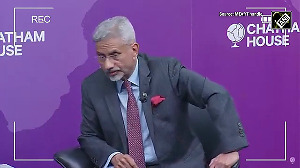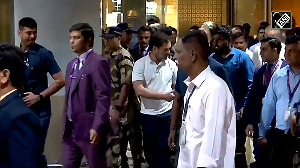The Supreme Court on Monday sought responses from the Centre, states and Union Territories on a public interest litigation seeking issuance of directions for providing free sanitary pads to girls studying in classes 6 to 12 in government schools across the country.

The top court said that since the petitioner has raised serious and important issues of sanitation and hygiene of girl students in government and government-aided schools, it requests the Solicitor General Tushar Mehta to assist the court.
A bench comprising Chief Justice DY Chandrachud and Justice PS Narasimha took note of the plea of social activist Jaya Thakur, a Madhya Pradesh-based doctor, and issued notices to the central government and all the states and UTs.
It sought replies of the Centre and states by the second week of January and directed that the copies of the petition be served to the states through their standing counsels.
Thakur, in her plea filed through advocate Varinder Kumar Sharma, said that serious difficulties are faced by adolescent females between the ages of 11 and 18 years who come from poor backgrounds in receiving education on account of lack of access to education, a constitutional right under Article 21A of the Constitution.
"These are adolescent females who are not equipped with and are also not educated by their parents about menstruation and menstrual hygiene. The deprived economic status and illiteracy leads to prevalence of unhygienic and unhealthy practices which has serious health consequences, increase obstinacy and leads to eventual dropping out from schools," the plea said.
It said that to achieve gender equality, it is crucial that girls are able to actualize their educational potential.
Referring to an 2018 order of the Delhi High Court, the plea said it had mandated the Delhi government to provide free or subsidized access to menstrual hygiene products in schools and to make arrangements for education on menstruation and menstrual hygiene.
"The government of India has deliberated for several years with regard to the inclusion of the right to education as a fundamental right. The Saikia Committee of 1997 had been appointed to examine the economic viability proposal as to whether the right to free elementary education up to 14 years of age could be made a fundamental right," it said.
The plea said that the Right to Education Act, 2009 was enacted and took effect from August 26, 2009 with the objective of providing free and compulsory education in the age group of six to 14 years.
It added that the apex court's 2019 verdict in the Sabarimala temple case addressed menstrual taboos and the associated stigma and ruled that the discriminatory emphasis placed on biological differences constituted a violation of Article 14 -- the right to equality -- and emphasized that the social exclusion of women based on menstrual status is a form of untouchability.
"Prevalent myths about menstruation force millions of girls to drop out of school early or be ostracized for the duration of their menstrual cycle every month. They also affect the hiring of female workers, as it is felt that the menstruation hampers their productivity capabilities. Unfortunately, it continues to be treated as a taboo in many societies, shrouded in a culture of silence and shame," the plea said.
Thakur, in her plea, arrayed the Centre and all states as party and sought directions to them for providing separate toilets in all government, aided and residential schools. It also sought directions to provide one cleaner in all government, aided and residential schools to clean the toilets and implementation of an awareness programme among students on menstrual health.











 © 2025
© 2025